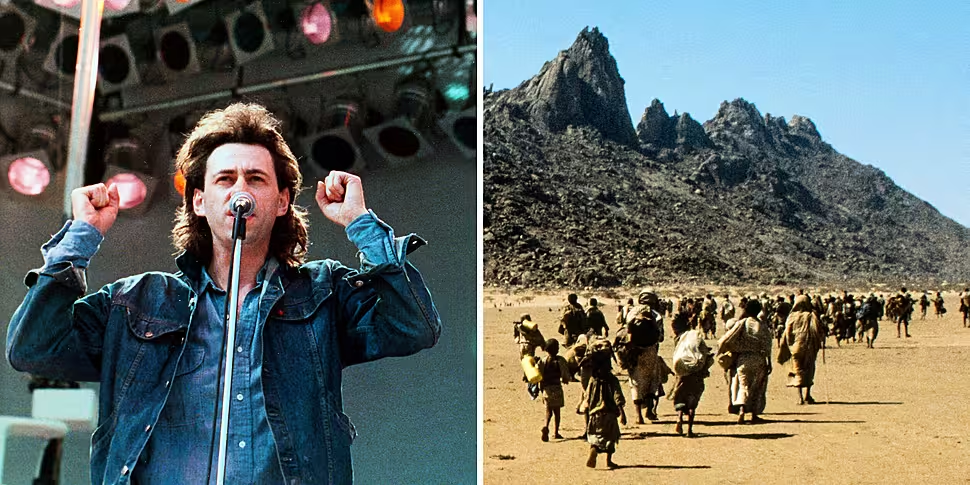This week is 40 years since a TV report about the famine in Ethiopia led to Band Aid - part of the “biggest rescue operation in history”.
In 1984, the country was in the grip of a “biblical famine” that killed between 600,000 and a million people.
For most people in the west, the scale of the disaster and the grim human suffering first came to their attention because of a groundbreaking report from journalist Michael Buerk.
Aired on the BBC on October 23rd, 1984, Mr Buerk’s report from Korem in Northern Ethiopia described in devastating detail the suffering of the local people.
“Those who die in the night are brought at dawn to be laid out at the edge of the plane,” he informed viewers.
“Dozens of them; men, women and children under blankets or bound in sack clothes for burial in the local custom.
“For two hours, the bodies kept coming from out of the encampment - this mother and the baby she bore two-months ago, wrapped together in death.”
That night, 37 people had died and Mr Buerk matter of factly predicted that “tomorrow there would be more”.
Four decades on, Mr Buerk told Henry McKean for The Hard Shoulder that the report was a game changer in terms of public awareness of the tragedy.
“Important doesn’t begin to describe it,” he said.
“It was a human catastrophe on a major scale - that was obvious.
“What wasn’t quite so obvious is that we were there; we could see it, smell it, touch it.
“There were children trying to give us their children and babies.”
Despite this, Mr Buerk was originally scared that he would be unable to successfully communicate the sheer horror of what Ethiopians were enduring. “What worried me at the time was, that was all very well, but how would that be communicated to people who were seeing it at several removes in the comfort of their living rooms watching it on their screens while having a beer or a coffee,” he said.
“It was an anxiety but also I couldn’t see people’s reactions would be the same as our own reactions were on the spot and experiencing it firsthand.”
'Feed The World'
As a result, millions of dollars and pounds worth of donations flooded into the country.
Irish and British musicians go together to form Band Aid which released the single Do They Know It’s Christmas? raising millions more for the relief effort.
The following year the Live Aid concert led to additional tens of millions of dollars in donations.
“The immediate legacy was what has been described as the biggest rescue operation in history,” Mr Buerk said.
“Nobody really knows how many lives were saved - not just by Band Aid and Live Aid - but also because under public pressure, the aid policies of the European Union, the United Kingdom and the United States were changed.”
To this day, Ethiopia continues to suffer from chronic levels of food insecurity.
According to the British House of Lords, in August there were 16 million people in the country who needed food assistance.
You can listen back here:
Main image: Split of Bob Geldof and Ethiopia.









